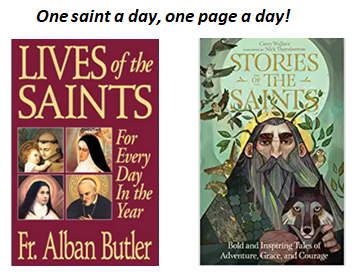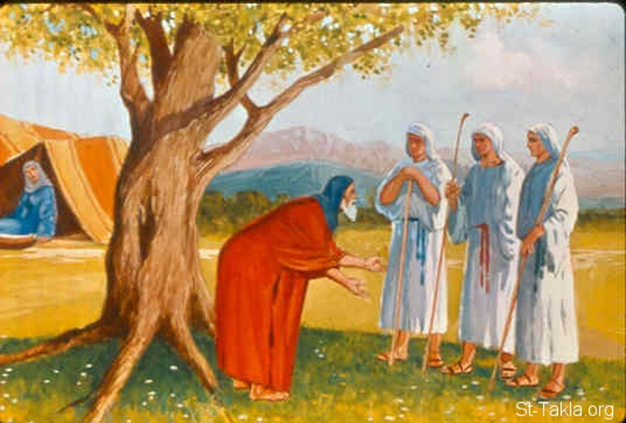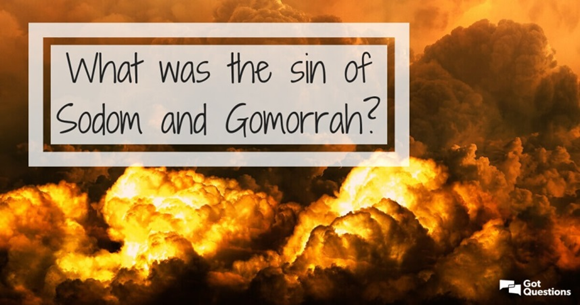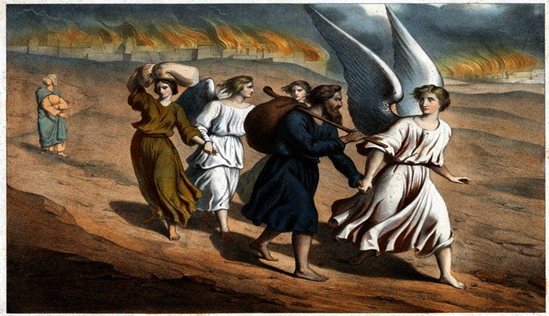03.08.22 Recap - Bible Timeline: Genesis 19-22
- tmaley
- Mar 15, 2022
- 13 min read
Northern Virginia Catholic Bible Study Northern Virginia Catholic Bible Study house rules/notes… 1. Meetup is https://meetu.ps/c/4mYPW/F6KR3/a, Zoom Meeting Logon information is the same every week: Zoom ID: 861 1782 2081 Password: 406952 2. Questions encouraged. If you have questions about anything, you can email the group via Meetup, or me directly at ron@hallagan.net. 3. The unedited recaps from our meetings will be posted on Meetup immediately, and a final edited version will be posted on our Catholic Catacombs Light website https://catholiccatacombs.wixsite.com/website/blog, a week later. 4. See The Chosen. Knowing Jesus Christ means being able to better relate to God. Check it out: The Chosen at https://thechosen.link/1Y1R7. 5. Respectfulness. We will be discussing differences between religions and even between Christian denominations, but we agree to use respectful words and tones in doing so. Specifically, Protestants are our friends and brothers in Christ, and personally I owe part of my return to the faith to them. 6. No politics. It would be easy for us to self-destruct; however, that’s not our goal. Our goal is to learn the Bible, explain the Catholic faith and help members develop a closer relationship with Jesus Christ in their daily lives. 7. Catholic Prayer, Fellowship, and Spirituality Meetup led by fellow member Jason Goldberg: https://www.meetup.com/online-catholic-prayer-fellowship-and-spirituality/

Vocabulary
Man – generic for mankind, humanity. God as Father/He/Him – scripture tradition; as we know, God is not a gender.
Exegesis –meaning to explain or interpret the meaning of, usually referring to the Bible. [From Greek: ex =out of + hege = guide]
Eschatology – refers to “end times.” We sometimes ask what is the eschatological meaning of scripture. For example, “What is the eschatological meaning of the 7th Day?” Ans: It refers to heaven.
Obey - one is often surprised at the origin of this word. The root is from the Latin ob-audiens, meaning ‘to listen intently’. It was presumed that when one listened intently, they were interested in the subject and had a desire to understand what was being said by someone who knew more, and which could lead to success in whatever the endeavor or instruction was about. This was still true when Jesus spoke of obedience, although nowadays humans have turned it into something dictatorial about something we often don’t want to do anyway. This is to be expected, as humans ended up using it to get compliance or exert control rather than teaching/sharing out of love.
Preternatural = “outside the natural.” Generally refers to preternatural grace” – a state man was in before the Fall, when the intellect and will had a stronger connection. If our first parents had this, why did they fall? It doesn’t overcome pride. Even a third of the angels fell for this reason.
Opening Prayer
Dear Father, we praise You and we thank You for all good things –
and we ask your forgiveness for falling short of the love you give us.
We pray for your presence in our lives, for your conversations and guidance, and for the grace to walk ever closer to You.
Be present with us tonight and we talk about scripture and learn how your teachings can transform our lives here and now,
Lord, please hear the prayers of your faithful here tonight as we seek your assistance for our friends and loved ones,
and for our own difficulties. Hear the names of those we speak to you now:
(intentions spoken aloud or in silence)
We pray that all whom we have prayed for may be healed and endeavor with courage and faith.
Bless us all, Lord, and may Your Will, not ours, be done.
An as you taught us to pray:
Our Father…
Quote of the Week:
The Holy Spirit is our Trinitarian GPS. We can turn Him on and off. Usually, it’s our egos that turn Him off. When He’s off, we are living in a spiritual vacuum, often referred to as the devil’s playground but disguised as the glorified self. When we pray, we are reminding ourselves to turn Him back on.
Upcoming Catholic Holy Days
Lent: Ash Wednesday, March 2 to Holy Saturday, April 16. 40 days (46 days minus 6 Sundays)
Upcoming Jewish Holy Days: Purim (March 16-17) 14th of Adar.

Q: The 3 temptations of the Fall (and Jesus in the desert) are… (1) physical desires, (2) power, (3) to replace God (pride)
Q: The three, parallel “Pillars of Lent” are… Fasting, almsgiving, and prayer.
On Ash Wednesday, to kick off the penitential season of Lent in preparation for Easter, many of us go to Mass and receive ashes on our foreheads as a reminder of death and of the fleeting nature of worldly things. When we receive the ashes, we are told by the priest, “Remember, you are dust, and unto dust you shall return” or “Turn away from sin and be faithful to the gospel.”
Have you noticed that we cannot see the ashes on our own forehead? Does this mean the ashes are meant for others to see?
But wait, didn’t Jesus say not to be show off our sacrifices and penances?
“And when you fast, do not look dismal, like the hypocrites, for they disfigure their faces that their fasting may be seen by men. Truly, I say to you, they have received their reward. But when you fast, anoint your head and wash your face that your fasting may not be seen by men but by your Father who is in secret; and your Father who sees in secret will reward you” (Matt. 6:16-18).
Q: Doesn’t Ash Wednesday contradict this?
The answer is tied to our intentions, which Jesus speaks at great length about. For example, it is not only wrong to sleep with your neighbor’s spouse, but it is also wrong to intend to sleep with them. Just because you don’t pull it off does not mean you have been good.
Furthermore, Jesus would not contradict scripture. Note Jeremiah:
“Thus says the Lord … O daughter of my people, gird on sackcloth, and roll in ashes; make mourning as for an only son, most bitter lamentation; for suddenly the destroyer will come upon us” (6:22-26).
What is the difference? One is to humble ourselves as a reminder of our sinfulness, and what Jesus is talking about is ostentatious flaunting. The same is true for praying, fasting, and almsgiving. If you are doing it for show, you are doing it for the wrong reason. Yes, it still has some good associated with it, but the recognition you sought will be all the reward you will get, because that is the reward you sought.
We do not need to wear our ashes flauntingly. It is a humble reminder that this world is temporary and there are bigger things for us to attend to while we are here. If others happen to see our ashes, it can be a reminder to them as well.
Lenten Resources
1. Fr. Joseph’s 2022 Lenten series.
When you sign up, you will be sent daily meditations to your inbox beginning on Ash Wednesday and then on each Sunday of Lent and Easter Sunday.
You can also sign up to receive the weekly Lenten meditations and the Lenten eBook here: ewtn.com/lent.
2. Lenten Prayer Sources
https://mycatholic.life/lent-prayers-reflections/
https://equippinggodlywomen.com/faith/daily-lenten-prayers-for-spiritual-renewal/ (40 prayers for 40 days)
www.masstimes.org
3. Lives of the Saints:



Q: Who remembers where we left off?
Abraham was negotiating with the Lord/Angel to save Sodom. Who lived there? His nephew, Lot, and his family.
Q: How did those negotiations go? How did they end up?
Abraham said what if there were 50 good people? The angel said fine, he would not destroy Sodom. Abraham said what if there was 45? Angel said okay. What about 40? Angel said okay. All the way down to 10. The Angel said if he found 10 good people there, he would not destroy Sodom.

Q: What does Abraham’s dialogue with God suggest to us?
1) That the people of Sodom must be pretty bad.
2) God loves a conversation with us. We shouldn’t be afraid of this.
Q: Sodom & Gomorrah are always used as examples of the worst places ever, usually referring to sexual depravity. Is this deserved?
Their “badness” seems to be many things. Sexual, yes, but not just that. Following are some Biblical references to these cities and then a couple of short stories from Jewish tradition.
Let’s see what we can tell from these references to Sodom & Gomorrah found in Scripture:
Now the inhabitants of Sodom were wicked, great sinners against the LORD. -- Gen 13:13
If the LORD of hosts had not left us a small remnant, we would have become as Sodom, would have resembled Gomorrah. -- Isaiah 1:9
Their very look bears witness against them; they boast of their sin like Sodom, they do not hide it. Woe to them! They deal out evil to themselves. -- Isaiah 3:9
Your elder sister was Samaria with her daughters to the north of you; and your younger sister was Sodom and her daughters, south of you. Not only did you walk in their ways and act as abominably as they did, but in a very short time you became more corrupt in all your ways than they were. As I live—oracle of the Lord GOD—I swear that your sister Sodom with her daughters have not done the things you and your daughters have done! Now look at the guilt of your sister Sodom: she and her daughters were proud, sated with food, complacent in prosperity. They did not give any help to the poor and needy. Instead, they became arrogant and committed abominations before me; then, as you have seen, I removed them. -- Ezekiel 16:46-50
But among Jerusalem’s prophets I saw something more shocking: Adultery, walking in deception, strengthening the power of the wicked, so that no one turns from evil; to me they are all like Sodom, its inhabitants like Gomorrah. -- Jeremiah 23:14
Likewise, Sodom, Gomorrah, and the surrounding towns, which, in the same manner as they, indulged in sexual promiscuity and practiced unnatural vice, serve as an example by undergoing a punishment of eternal fire. – Jude 1:7

An interesting read from the Jewish site Chabad.org:
Sodom and Gomorrah: Cities Destroyed by G-d
The cities of Sodom and Gomorrah have come to epitomize moral depravity and cruelty. Scripture is characteristically sparse when telling us of their failures. Talmudic and Midrashic sources give us a much fuller account of the hair-raising godlessness that characterized these towns. (Enough has been said on their sexual depravity. The following stories reveal the nature of their overriding, prideful character.)
Sodomite Hospitality
The Sodomites enjoyed a relatively high standard of living. Regarding Sodom, the Torah tells us that the entire plain was “well-watered . . . like the garden of G‑d,” and it follows that the crops were plentiful and good. The selfish Sodomites did not want to share this bounty with outsiders. To this end, they enacted laws and took great pains to repel travelers.
For example, in order to enter Sodom, one had to cross a river. The townspeople built a bridge over the river, and charged a fee of four zuzim for all who chose to cross it. Now, should someone try to bypass the toll by swimming across the river, the law was that he would pay a double fee of eight zuzim as a penalty.
It once happened that a traveler, ignorant of the local custom, swam across the river, hoping to save himself four zuzim. As he tried to enter the city, the guards stopped him.
“Pay the bridge fee!” they demanded.
“But I did not use the bridge,” the hapless fellow replied. “I swam across the river instead.”
“In that case, you owe us eight zuzim.”
The stranger refused to pay the exorbitant fee, and the guards soundly beat him. When they were finished with him, the wounded man dragged himself to the magistrate and demanded recompense for his suffering. The judge listened carefully to his tale of woe and then issued his verdict:
“For having crossed the river, you owe eight zuzim, as is the law. As to the beating, you must reward each of the fine gentlemen at the gate, because everyone knows the medical benefit of an occasional bloodletting.”
The Talmud does not tell us what happened next to the poor man. However, we hope that he left posthaste, because an even worse fate awaited those who chose to remain.
The beggar
An unfortunate beggar once wandered into Sodom and began going from door to door, begging for alms. To his surprise, every householder greeted him warmly and gave him a coin.
Overjoyed, he rushed to the nearest store, hoping to purchase some food, his first meal in days. But the shopkeeper turned him away. The same thing repeated itself wherever the man proffered his coins. Eventually the poor man expired from hunger. The clever Sodomites, who knew that this would happen, came running to retrieve their coins, upon which they had each thoughtfully marked their names.
Another story
It was announced in Sodom, “Whoever will give bread to a poor person will be burnt at the stake.”
Plotit, the daughter of Lot, who was married to a prominent Sodomite, once saw a poor man who was so hungry that he was unable to stand. She felt sorry for him. From then on, she made sure to pass him every day on her way to the well, and she would feed him some food that she had stashed in her water jug.
People wondered how the man managed to live. Upon investigation, they discovered her act and prepared to burn her. Before she died, she turned to G‑d and cried, “Master of the world, carry out justice on my behalf!” Her cries pierced the heavens, and at that moment G‑d said, “I will go down and see if what they have done is as bad as the outcry that has reached Me.”
What It Means to Us
The sages of the Mishnah teach:
The every-man-for-himself attitude may seem harmless, but as these stories reveal, it will ultimately lead to true evil.
While the cities of Sodom have long receded into the past, the mentality they epitomized is alive and well. Our job is to uproot and destroy this mindset wherever we can, replacing it with love and goodwill.

Genesis 19: Destruction of Sodom and Gomorrah
The two angels reached Sodom in the evening, as Lot was sitting at the gate of Sodom.
When Lot saw them, he got up to greet them; and bowing down with his face to the ground, he said, “Please, my lords, come aside into your servant’s house for the night, and bathe your feet; you can get up early to continue your journey.” But they replied, “No, we will pass the night in the town square.”
Comment: Lot does not know they are angels yet.
He urged them so strongly, however, that they turned aside to his place and entered his house. He prepared a banquet for them, baking unleavened bread, and they dined.
Before they went to bed, the townsmen of Sodom, both young and old—all the people to the last man—surrounded the house. They called to Lot and said to him, “Where are the men who came to your house tonight? Bring them out to us that we may have sexual relations with them.”
Lot went out to meet them at the entrance. When he had shut the door behind him, he said, “I beg you, my brothers, do not do this wicked thing!
I have two daughters who have never had sexual relations with men. Let me bring them out to you, and you may do to them as you please. But do not do anything to these men, for they have come under the shelter of my roof.”
Comment: I cannot speak for Lot, who has not exactly shown integrity since he first followed Abraham. However, Lot’s extreme response of offering his daughters to a violent mob shows how dangerous the situation was and, unfortunately, shows how little value women had in primitive society since many commentaries say that he was also motivated by the obligation of hospitality.
They replied, “Stand back! This man came here as a resident alien, and now he dares to give orders! We will treat you worse than them!” With that, they pressed hard against Lot, moving in closer to break down the door.
But his guests put out their hands, pulled Lot inside with them, and closed the door; they struck the men at the entrance of the house, small and great, with such a blinding light that they were utterly unable to find the doorway.
Comment: Lot now knows they aren’t your average guests!
Then the guests said to Lot: “Who else belongs to you here? Sons-in-law, your sons, your daughters, all who belong to you in the city—take them away from this place! We are about to destroy this place, for the outcry reaching the LORD against those here is so great that the LORD has sent us to destroy it.”
So Lot went out and spoke to his sons-in-law, who had contracted marriage with his daughters. “Come on, leave this place,” he told them; “the LORD is about to destroy the city.” But his sons-in-law thought he was joking.
As dawn was breaking, the angels urged Lot on, saying, “Come! Take your wife with you and your two daughters who are here, or you will be swept away in the punishment of the city.”
When Lot hesitated, the men, because of the LORD’s compassion for him, seized his hand and the hands of his wife and his two daughters and led them to safety outside the city.
As soon as they had brought them outside, they said: “Flee for your life! Do not look back or stop anywhere on the Plain. Flee to the hills at once, or you will be swept away.”
“Oh, no, my lords!” Lot replied to them. “You have already shown favor to your servant, doing me the great kindness of saving my life. But I cannot flee to the hills, or the disaster will overtake and kill me. Look, this town ahead is near enough to escape to. It is only a small place. Let me flee there—is it not a small place?—to save my life.”
Comment: Lot is referring to a smaller town nearby (Zoar). The other locations would take much greater exertion.
“Well, then,” he replied, “I grant you this favor too. I will not overthrow the town you have mentioned. Hurry, escape there! I cannot do anything until you arrive there.”
The sun had risen over the earth when Lot arrived in Zoar, and the LORD rained down sulfur upon Sodom and Gomorrah, fire from the LORD out of heaven.
He overthrew those cities and the whole Plain, together with the inhabitants of the cities and the produce of the soil.
But Lot’s wife looked back, and she was turned into a pillar of salt.
Comment: The Hebrew translation says, “to look intently at, to regard carefully,” suggesting she not only hesitated but may have not wanted to leave.
The next morning Abraham hurried to the place where he had stood before the LORD.
As he looked down toward Sodom and Gomorrah and the whole region of the Plain, he saw smoke over the land rising like the smoke from a furnace.
So when God destroyed the cities of the Plain, he remembered Abraham and brought Lot out of the catastrophe that overthrew the cities where he had lived.
Comment: From where Abraham was in Hebron, which is much higher up, he could easily look down and see these plains.

First-century Jewish historian Josephus considered all these factors – pride, homosexual behavior, inhospitality (hate of neighbor) – when he wrote about the sin of Sodom:
“About this time the Sodomites grew proud, on account of their riches and great wealth: they became unjust toward men, and impious toward God, insomuch that they did not call to mind the advantages they received from him: they hated strangers and abused themselves with Sodomitical practices.” – Flavius Josephus
Comments